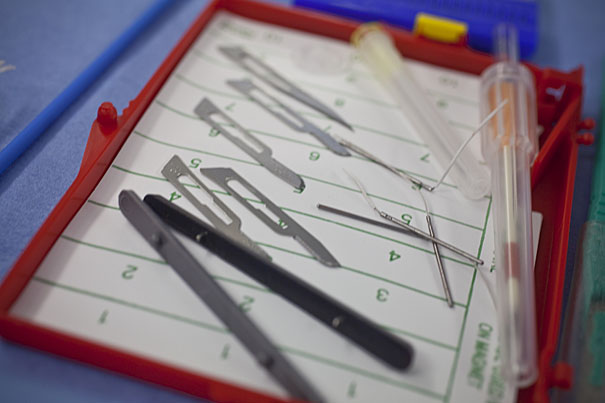Health
-
Lin Test
text with link. This is a quiz. Some text Name Name Quo modo autem philosophus loquitur? Tecum optime, deinde etiam cum mediocri amico. Invidiosum nomen est, infame, suspectum. Name Name…
-

Gender-affirming care is rare, study says
Fewer than 1 in 1,000 transgender youth receive hormones or puberty blockers

-

Nature offers novel approach to oral wound care
Slug’s sticky mucus inspiration behind adhesive hydrogel that can seal wounds in wet environment

-

Time for a rethink of colonoscopy guidelines?
Change informed by new findings would help specialists focus on those most at risk, researcher says

-

Should pharmacists be moral gatekeepers?
‘The problem is not opioids,’ says author of ‘Policing Patients’ — it’s overdose, pain
-

The deadly habit we can’t quite kick
Actions by tobacco companies worry researcher even amid ‘dramatic decrease’ in smoking among young Americans

-
Obesity rate will reach at least 42%
Researchers at Harvard University say America’s obesity epidemic won’t plateau until at least 42 percent of adults are obese, an estimate derived by applying mathematical modeling to 40 years of Framingham Heart Study data.
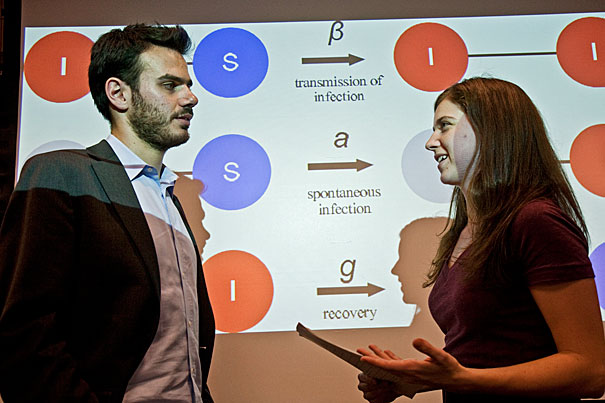
-
Bird, meet cousin alligator
Assistant professor Arkhat Abzhanov looks to birds’ relatives by way of dinosaurs — alligators — for clues to their evolution.
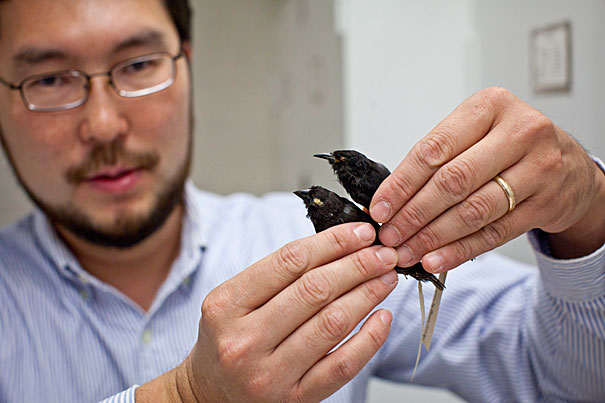
-
Neuroengineering program is focus
Bertarelli Foundation brings together Harvard Medical School and Swiss University EPFL to create joint neuroengineering program.

-
A new Center for Primary Care
Backed by a $30 million gift, Harvard Medical School’s unit will serve as a docking point for students, residents, fellows, and faculty from across HMS and its affiliated teaching hospitals.
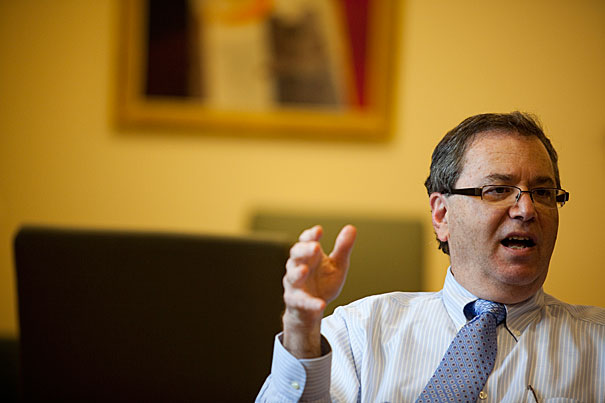
-
Targeting lung cancer
An initial study of a new treatment for a form of lung cancer seems so promising it has been jumped from Phase 1 to Phase 3 clinical trials.
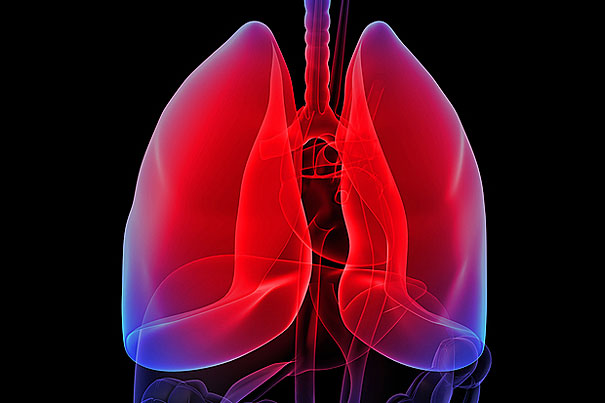
-
Fuel efficiency for marathoners
Inspired by his experience in the 2005 New York Marathon, an M.D./Ph.D. student has taken a rigorous approach to calculating just how much carbohydrate a runner needs to fuel himself or herself through 26.2 miles, and what pace that runner can reasonably expect to sustain.
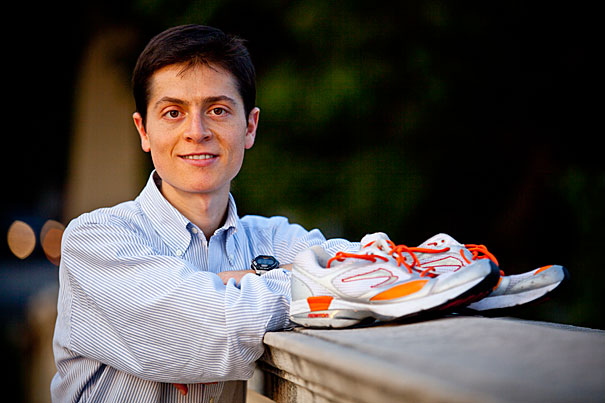
-
Thinking like an octopus
A philosophy professor’s summer of diving in Sydney Harbour has gotten him thinking about what octopus intelligence might mean.
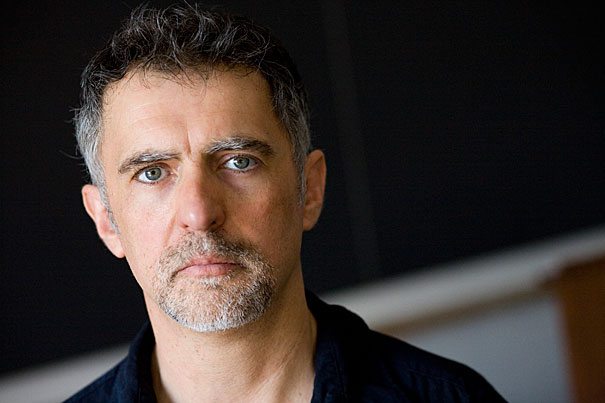
-
When ‘watch and wait’ works best
Harvard researchers have found that as many as 50 percent of young girls treated for germ cell ovarian tumors might be spared chemotherapy using a “watch and wait” strategy to determine if the follow-up treatment is needed.

-
Smelling the light
Harvard neurobiologists have created mice that can “smell” light, providing a new tool that could help researchers better understand complex perception systems that do not lend themselves to easy study with traditional methods.
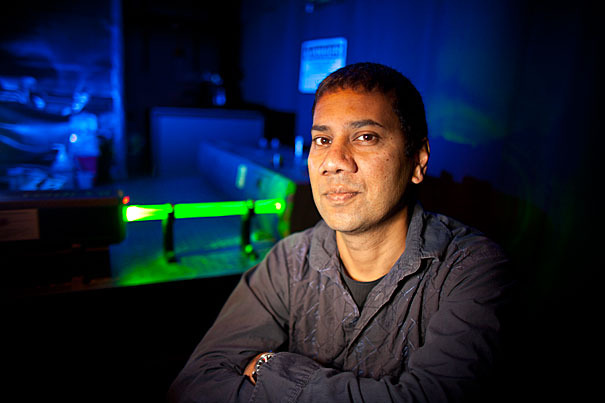
-
Safer tanning?
Harvard researchers have found a molecular switch that may someday make it possible to get a tan without exposure to harmful UV rays.

-
Be skinny, be strong, be loved — be fooled
Joshua Sharfstein, the Food and Drug Administration’s principal deputy commissioner, talked about tobacco control and the agency’s role in keeping Americans healthy.
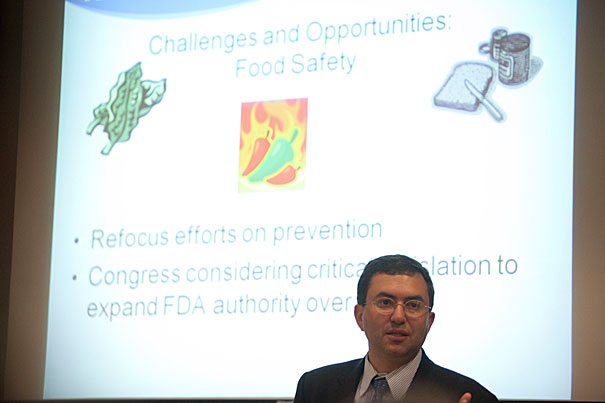
-
Mapping the road to obesity
Unlike previous investigations, which examined fat cells at a single static time point, this new study mapped several histone modifications throughout the course of fat cell development. With these new findings researchers now have a better understanding of normal fat cell development, and going forward, they can compare normal fat cells with fat cells in disease states.
-
Progress on obesity
Researchers have identified 18 gene sites associated with obesity and 13 associated with body fat distribution, helping to unravel the riddle of obesity.

-
A new target for Parkinson’s therapy
In a new finding from Harvard-affiliated Brigham and Women’s Hospital (BWH), researchers identify a link between Parkinson’s disease onset and dysfunctional activity of energy genes in the brain and identify a potential therapeutic target to reverse this energy gene failure.
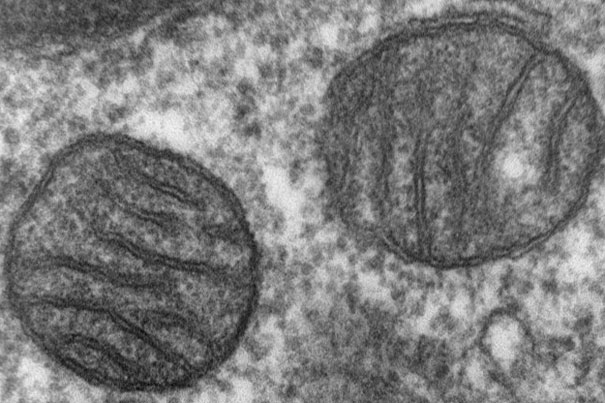
-
Figuring out suicidal behavior
Matthew Nock is a new professor of psychology at Harvard who uses scientific research to try to determine which medical treatments help to prevent suicide.
-
Hunting the missing health link
Researchers at Brigham and Women’s Hospital are launching a study of 100,000 patients to determine the link among genetics, lifestyle, and environmental factors in causing disease.
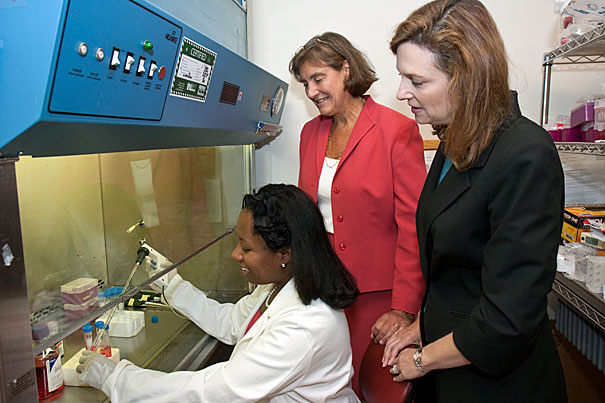
-
Not just child’s play
Researchers at Harvard-affiliated Children’s Hospital Boston and UMass studied energy expenditure and enjoyment in schoolyard play, finding a menu of games to address childhood obesity.

-
Breakthrough in cell reprogramming
A group of Harvard Stem Cell Institute researchers has made such a significant leap forward in reprogramming human adult cells that HSCI co-director Douglas Melton said the institute will immediately begin using the new method to make patient- and disease-specific induced pluripotent stem cells, known as iPS cells.
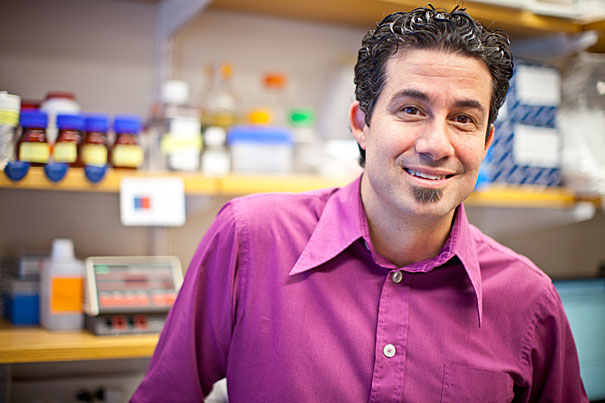
-
It all adds up
New mathematical modeling by scientists from Harvard and other institutions reinforces the view of cancer as a complex culmination of many mutations.

-
Challenge of finding a cure
A large, multidisciplinary panel has recently selected 12 pioneering ideas for attacking type 1 diabetes, ideas selected through a crowdsourcing experiment called the “Challenge,” in which all members of the Harvard community, as well as members of the general public, were invited to answer the question: What do we not know to cure type 1 diabetes?
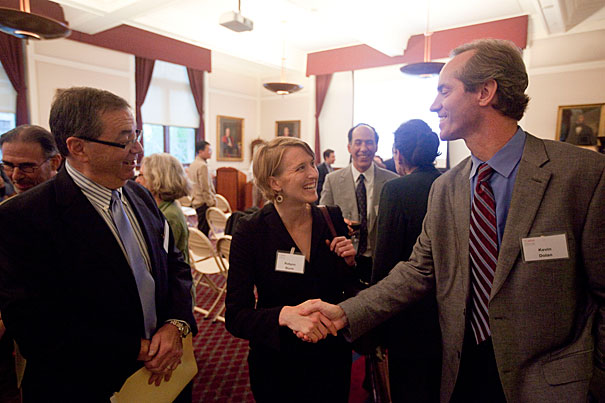
-
More from spores: How they spread
Researchers discover how fungi developed an aerodynamic way to reduce drag on their spores so as to spread them as high and as far as possible.
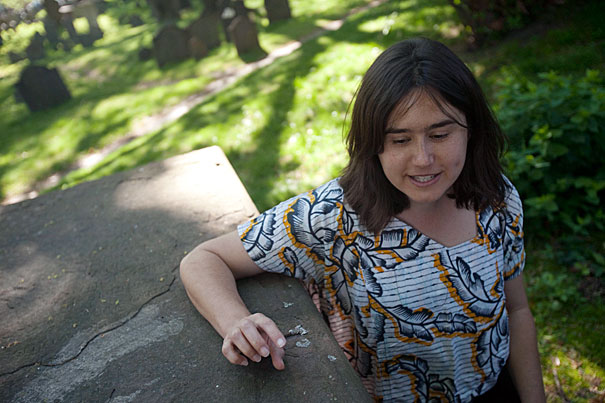
-
Poised for progress
A discovery by scientists at Harvard-affiliated Dana-Farber Cancer Institute may lead to an effective way of operating the immune system’s internal “control panel,” improving therapies for a variety of diseases.

-
Health reform alone may not increase access to physicians or reduce healthcare inequality gaps
In a new study, Harvard researchers looked at the effects of the 2006 Massachusetts Health Reform and found that the legislation has led to improvements in insurance coverage as well…
-
Horns aplenty
A new exhibit at the Harvard Museum of Natural History highlights the enormous diversity of antlers and horns and examines how they came into being and what they’re used for.

-
I’ll get mine, Jack
A new paper suggests that the mutually beneficial relationships that species create are maintained mostly because of simple self-interest.
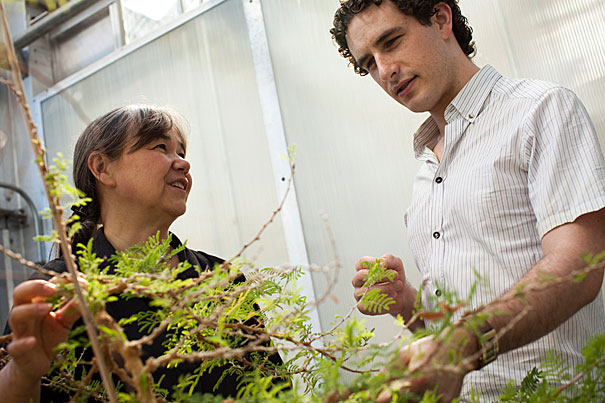
-
The ties that bind
Harvard scientists say natural selection alone can explain “eusociality,” the cooperative social structure in many of Earth’s dominant species.
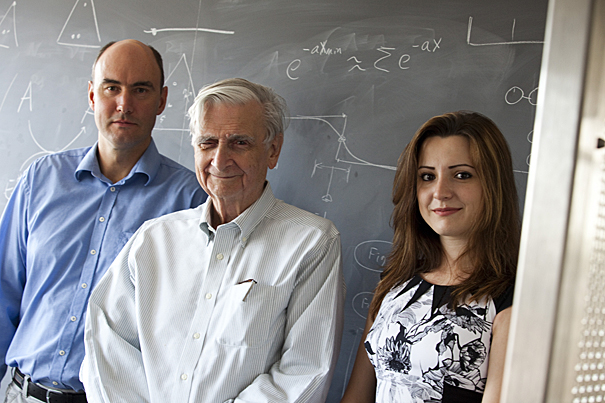
-
What’s right for me?
In a new study, Harvard scientists find that humans can make difficult moral decisions using the same brain circuits as those used on more mundane choices such as money or food.

-
Health leaders push for better cancer care in developing countries
Once thought to be a problem primarily in the developed world, cancer is now a leading cause of death and disability in poorer countries. Almost two-thirds of the 7.6 million cancer deaths in the world occur in low- and middle-income countries.
-
Hard on the ears
Researchers at Harvard-affiliated Brigham and Women’s Hospital have determined that hearing loss in adolescents has increased over the past 15 years.

-
Early action cuts claims, costs
Researchers at Brigham and Women’s Hospital (BWH) and the University of Michigan analyzed a program of full disclosure and compensation for medical errors and found a decrease in new claims for compensation (including lawsuits) and liability costs.
